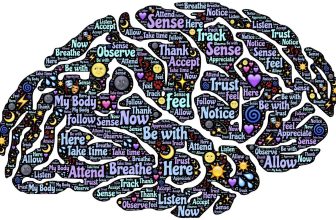The Power of Mindfulness: Harnessing the Potential for a Balanced and Fulfilling Life
Introduction
In today’s fast-paced and constantly interconnected world, the need for individuals to find solace and a sense of inner peace has become increasingly important. Mindfulness, a practice deeply rooted in ancient Eastern philosophies, offers a transformative approach to combating the overwhelming nature of modern life. This article explores the concept of mindfulness, its benefits, and its potential for cultivating a balanced and fulfilling life.
Understanding Mindfulness
Mindfulness, originating from the Buddhist tradition, refers to the ability to be fully aware of the present moment, free from judgment and distractions. It involves maintaining a conscious, non-reactive state of mind, enabling individuals to comprehend and respond to internal and external experiences with clarity and compassion. The practice of mindfulness stimulates one’s awareness of sensations, thoughts, emotions, and surroundings, serving as a gateway to self-understanding, acceptance, and personal growth.
Benefits of Mindfulness
Numerous studies have demonstrated the positive impact of mindfulness on various aspects of life, including mental, emotional, and physical well-being. By training the mind to stay present and embrace reality without judgment, individuals can experience notable improvements in stress reduction, focus, cognitive function, and emotional regulation.
Stress Reduction: Mindfulness reduces the negative impacts of stress by breaking the cycle of chronic worrying and anxious thinking. Through increased self-awareness, individuals learn to recognize stress triggers and develop healthier coping mechanisms. Mindfulness-based stress reduction (MBSR) programs have also been proven effective in reducing stress-related physiological symptoms, such as high blood pressure and cortisol levels.
Improved Focus: Modern life inherently demands constant multitasking and divided attention, often leading to diminished focus and productivity. By directing attention to the present moment, mindfulness enhances concentration and attentiveness. Research suggests that regular mindfulness practice improves working memory, information processing, and decision-making skills, ultimately leading to enhanced overall productivity and performance.
Emotional Regulation: Mindfulness fosters emotional intelligence by enabling individuals to identify and acknowledge their emotions without being controlled by them. By cultivating present-moment awareness, individuals develop the capacity to respond to emotions in a balanced and compassionate manner, reducing impulsivity and enhancing emotional resilience. Moreover, several studies have indicated that mindfulness-based interventions are effective in treating mood disorders, such as depression and anxiety.
Physical Well-being: Mindfulness has been found to have positive impacts on physical health as well. It promotes a healthier lifestyle by reducing emotional eating, improving sleep patterns, and increasing physical activity levels. Furthermore, mindfulness-based interventions have shown significant benefits for individuals dealing with chronic pain and other physical ailments.
Cultivating Mindfulness
To incorporate mindfulness into everyday life, one must engage in regular practice. While there are many forms of practice, two widely recognized methods are meditation and mindful activities.
Meditation: Meditation serves as a foundational practice for cultivating mindfulness. By dedicating a specific time and space to sit quietly and focus on their breath or a specific object of attention, individuals gradually develop the habit of non-judgmental awareness. Starting with short meditation sessions and gradually increasing the duration allows individuals to build resilience and develop steadiness of mind. The use of guided meditation apps or attending meditation classes can provide valuable resources for beginners.
Mindful Activities: Engaging in routine activities mindfully can also foster mindfulness. Activities such as walking, eating, or even brushing teeth can become opportunities for heightened self-awareness. By bringing full attention to each action, one can fully experience the present moment and appreciate the subtle sensations and details often overlooked. Incorporating such practices into daily life helps to ground oneself in the present moment and cultivate a deeper connection with the world.
Impact of Mindfulness on Relationships and Society
Mindfulness extends beyond individual benefits and has the potential to positively influence relationships and society as a whole. When individuals cultivate mindfulness, they develop the ability to listen actively, empathize deeply, and respond thoughtfully. Such qualities enhance communication and strengthen interpersonal connections, fostering healthier relationships. Moreover, research suggests that mindfulness-based practices in educational institutions and workplaces can lead to reduced conflict, increased collaboration, and improved overall well-being.
Conclusion
In conclusion, mindfulness offers a powerful pathway to counteract the chaos and stress of modern life. By training the mind to remain present and non-judgmental, individuals can experience a range of benefits, including stress reduction, improved focus, emotional regulation, and enhanced physical well-being. Through regular meditation practice and engaging in routine activities mindfully, individuals can unlock the transformative potential of mindfulness. As the world continues to evolve, the adoption of mindfulness is crucial for individuals and society to cultivate a more balanced, fulfilling, and compassionate existence.







